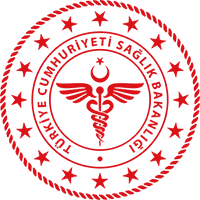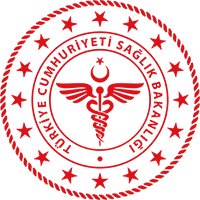Best Neurosurgery Treatment Hospitals in Ankara

Medicana International Ankara
Ankara, TurkeyMulti-Specialty Hospital
Söğütözü Cd. 2165. Sokak No: 6, Sogutozu/Ankara
Ankara Ankara 06520
Specialities
56Doctors
3Beds
215
Güven Hospital
Ankara, TurkeyMulti-Specialty Hospital
Kavaklıdere, Remzi Oğuz Arık Mahallesi, Şimşek Sk. No:29, 06540 Çankaya/Ankara, Turkey
Specialities
35Doctors
0Beds
254
Özel Lokman Hekim Akay Hastanesi
Ankara, TurkeyMulti-Specialty Hospital
Kavaklıdere, Büklüm Cd No:4, 06700 Kavaklıdere / Çankaya/Çankaya/Ankara, Turkey
Specialities
50Doctors
0Beds
0
Kırıkkale Tıp Fakültesi
Ankara, TurkeyMulti-Specialty Hospital
Kırıkkale University Faculty of Medicine Research and Application Hospital Kırıkkale University Campus Ankara Yolu 7.Km.71450 Yahşihan/KIRIKKALE
Specialities
37Doctors
0Beds
0
29 Mayıs State Hospital (29 Mayıs Devlet Hastanesi Acil)
Ankara, TurkeyMulti-Specialty Hospital
Aydınlar, Dikmen Cd. No:312, 06105 Çankaya/Ankara, Turkey
Specialities
29Doctors
0Beds
0
Lokman Hekim Üniversitesi Ankara Hastanesi
Ankara, TurkeyMulti-Specialty Hospital
Andiçen Mh, Polatlı 2 Caddesi, İdil Sk. No:44, 06930 Sincan, Turkey
Specialities
50Doctors
0Beds
0

Liv Hospital Ankara
Ankara, TurkeyMulti-Specialty Hospital
Kavaklıdere, Bestekar Cd No:8, 06680 Çankaya/Ankara, Turkey
Specialities
32Doctors
0Beds
0
Medicana International Ankara
Ankara, TurkeyMulti-Specialty Hospital
Söğütözü, 2176. Cad No.3, 06790 Etimesgut/Ankara, Turkey
Specialities
17Doctors
0Beds
0
Kayseri Hospital
Ankara, TurkeyMulti-Specialty Hospital
Gevher Nesibe Mah. Salih Avgun Pasa Cad. Temizel Sok. No: 13, 38010, Kocasinan / Kayseri
Specialities
13Doctors
0Beds
0
Vm Medical Park (Keçiören) Ankara Hastanesi
Ankara, TurkeyMulti-Specialty Hospital
Kalaba, 06120 Keçiören/Ankara, Turkey
Specialities
13Doctors
0Beds
5200Top 10 Neurosurgery Treatment Hospitals Near Ankara
| Hospital | Rating | Doctors | Location |
|---|---|---|---|
| Medicana International Ankara | ---- | 33 | Ankara |
| Güven Hospital | ---- | -------- | Ankara |
| Özel Lokman Hekim Akay Hastanesi | ---- | -------- | Ankara |
| Kırıkkale Tıp Fakültesi | ---- | -------- | Ankara |
| 29 Mayıs State Hospital (29 Mayıs Devlet Hastanesi Acil) | ---- | -------- | Ankara |
| Lokman Hekim Üniversitesi Ankara Hastanesi | ---- | -------- | Ankara |
| Liv Hospital Ankara | ---- | -------- | Ankara |
| Medicana International Ankara | ---- | -------- | Ankara |
| Kayseri Hospital | ---- | -------- | Ankara |
| Vm Medical Park (Keçiören) Ankara Hastanesi | ---- | -------- | Ankara |
Questions & Answers on "Neurosurgery Treatment" (48)
Get Free Assistance!
Fill out this form and our health expert will get back to you.



